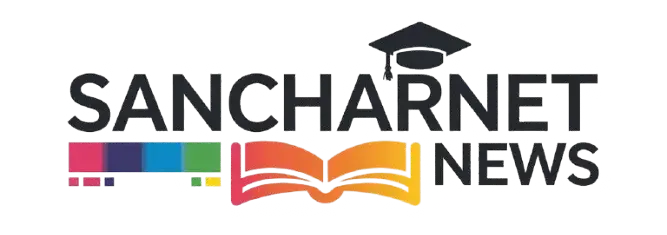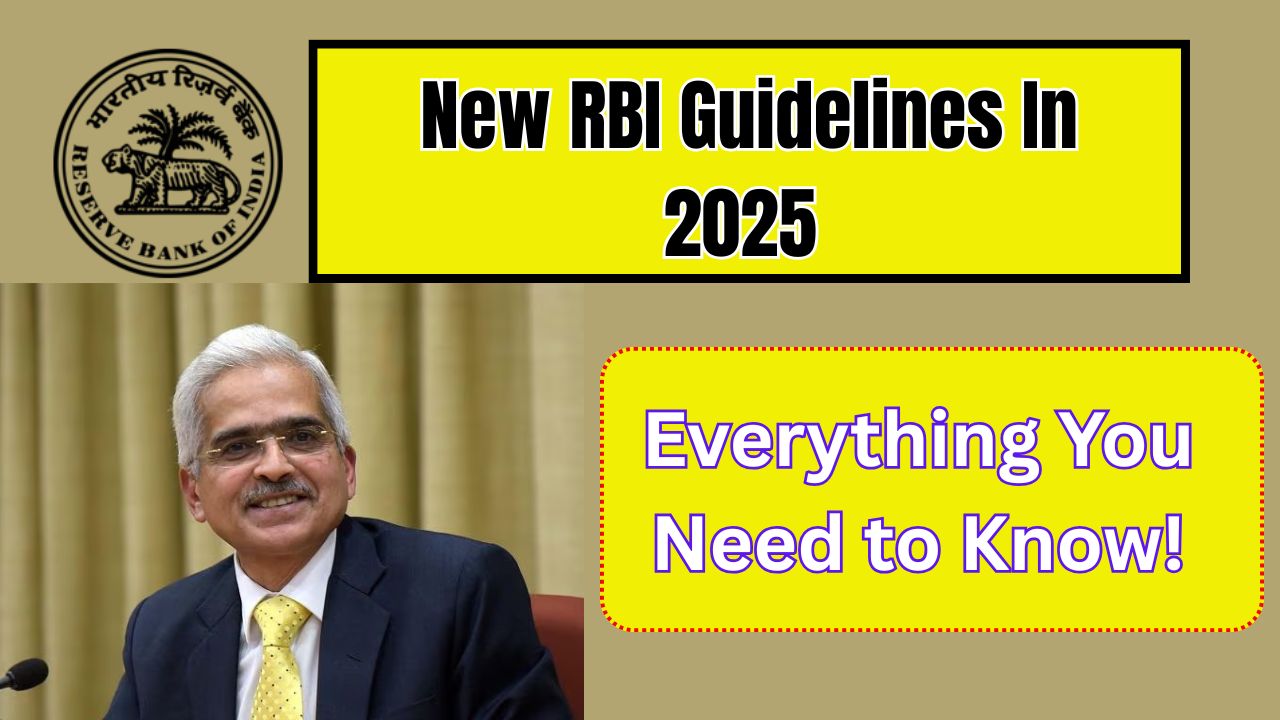New RBI Guidelines in 2025: In a landmark move to strengthen financial discipline in India, the Reserve Bank of India (RBI) has announced sweeping new regulations targeting chronic loan defaulters and cheque bouncers. With the steady rise in non-performing assets (NPAs) and misuse of financial instruments, these new guidelines are designed to impose stricter penalties, enhance transparency, and restore public confidence in the Indian banking system.
This crackdown comes at a critical time when the Indian economy is striving for robust growth, improved financial stability, and greater trust in its financial institutions. Let’s dive deep into what these new RBI rules mean for individuals, businesses, and the banking sector at large.
What is the New RBI Guidelines In 2025 About?
The new regulatory framework announced by the RBI focuses on two key problem areas:
- Chronic loan defaults
- Bounced cheques due to insufficient funds
The primary aim is to tackle financial indiscipline aggressively and make both borrowers and businesses more accountable. Whether it’s a missed EMI, a bounced post-dated cheque, or an unsecured personal loan left unpaid, the RBI’s new policies ensure that non-compliance will come with swift and significant consequences.
New RBI Guidelines of the New Policy:
- Harsher restrictions on repeat defaulters
- Mandatory real-time reporting of cheque bounces
- Centralized database tracking defaulters and offenders
- Tighter loan screening norms
- Faster legal action initiation timelines
This updated framework is considered one of the most stringent financial discipline policies India has seen in recent years.
₹500 RBI Star Mark Note: check why rBI released new note?
New R50 and R100 Banknotes Announces By SARB In 2025: All You Need to Know
Who Will Be Affected by RBI’s New Rules?
The crackdown doesn’t just target big corporate houses. It equally impacts individuals, MSMEs (Micro, Small, and Medium Enterprises), and even freelancers and startups who rely on credit facilities.
Categories Affected:
- Personal loan defaulters
- Credit card non-payers
- MSMEs missing loan repayments
- Real estate firms delaying EMIs
- Cheque issuers without sufficient balance
- Startups using PDCs (Post Dated Cheques) irresponsibly
Simply put, the rules will apply across the board—whether you’re a salaried professional missing a credit card payment or a business entity defaulting on a supplier cheque.
Major Changes in Reporting and Compliance Rules
Earlier, loan defaults and cheque bounces were reported monthly or at the bank’s discretion. Delays in reporting allowed bad debts to accumulate. Not anymore.
Here’s how the new system tightens compliance:
| Action Required | Previous Rule | New RBI Rule (2025) | Deadline |
| Reporting personal loan default | Monthly summary | Real-time update | Within 7 days |
| Reporting cheque bounce | Bank discretion | Mandatory same-day reporting | Same day |
| Credit bureau notification | Delayed | Immediate reporting | Within 3 working days |
| Freeze on future loan applications | High-value defaults only | After two offenses | Immediate after 2 offenses |
| Blacklisting threshold | ₹1 lakh default | ₹50,000 default | As per RBI list |
| Legal action initiation | After bank recovery attempts | After 2 reminders | Post 14 days from default |
| Digital portal updates | Monthly updates | Daily real-time sync | 24-hour cycle |
With these new compliance timelines, financial institutions are required to act faster and borrowers will no longer get a long grace period before consequences kick in.
New RBI for Cheque Bounce Offenses
The RBI is now working closely with the judiciary and state governments to enforce tougher penalties under the Negotiable Instruments Act.
Here’s what’s new for cheque bouncers:
New Penalty Structure:
- Minimum Fine: ₹10,000 per bounced cheque
- Imprisonment: Up to 2 years for repeat offenders
- Bank Account Freeze: For habitual cheque bouncers
- Credit and Loan Ban: Ineligibility for up to 3 years
- Blacklisting Across Financial Systems: Impacting GST registration, ROC (Registrar of Companies) status, and tax compliance.
If a cheque issued by a company bounces, it could now lead to the cancellation of government contracts and potential GST registration suspension—a major blow for businesses.
Penalty Comparison Table:
| Offense Type | First-Time Offender | Repeat Offender | Corporate Consequences |
| Cheque Bounce | Fine up to ₹5,000 | Jail + Fine ₹10,000+ | Government contract ban, GST issues |
| Loan EMI Missed | Credit score impact | RBI reporting, loan ban list | Blacklisting for 3 years |
| Post-dated Cheque Failure | Bank-level warning | Digital alert to all banks | GST registration block + ROC notice |
| Loan Default > ₹50,000 | One-time warning | Immediate credit freeze | SEBI and ROC tracking initiated |
Why RBI Crackdown Matters for the Economy
Over the last decade, India’s financial system has been plagued by rising NPAs and frequent financial instrument misuse, denting investor confidence and slowing economic progress.
The new RBI crackdown is expected to:
- Protect honest borrowers and reward disciplined repayment behavior
- Attract more foreign and domestic investment into Indian banks
- Improve loan repayment rates in retail and MSME sectors
- Reduce the cost of borrowing as NPAs come down
- Enhance creditworthiness of the Indian financial ecosystem on a global scale
In essence, it’s a proactive move toward a healthier, more transparent banking system where risks are minimized, and trust is maximized.
How Borrowers Can Protect Themselves: Essential Tips
If you’re a borrower, cheque issuer, or credit card holder, you must adapt to the new financial landscape quickly. Here are practical steps you can take:
Key Safe Practices:
| Action | Benefit | Frequency |
| Maintain sufficient balance | Prevents bounced cheques | Before issuing any cheque |
| Set auto-reminders for EMIs | Avoids missing due dates | Monthly |
| Enable auto-debit for bills | Reduces risk of manual errors | Always recommended |
| Check credit report regularly | Detects early warning signs | Once a month |
| Respond to notices immediately | Prevents legal action and blacklisting | Within 48 hours |
| Limit multiple loans | Reduces financial burden | Planned annually |
| Keep digital records | Proof in case of disputes | Real-time documentation |
New Rules for Indian Workers in 2025: 4-Day Work Week & Major Salary Changes—Full Details Inside
India Post GDS 2nd Merit List 2025: State Wise second Merit List, check all details here!
Additional Updates for 2025 Borrowers
- Unified Blacklist Portal: The RBI plans to launch a public portal by December 2025 where individuals and companies can check if they have been blacklisted.
- Integration with GST and ROC Systems: Default or bounced cheque history will impact GST filings and company annual returns.
- New Financial Health Score: Alongside the credit score, a new Financial Health Score will soon be introduced, factoring in EMI payments, cheque reliability, and tax compliance.
Conclusion: New RBI Guidelines In 2025
The Reserve Bank of India’s 2025 crackdown on loan defaulters and cheque bouncers marks a major shift towards greater accountability, transparency, and financial discipline. While some may view the changes as harsh, they are ultimately a step in the right direction to strengthen India’s economic foundation.







